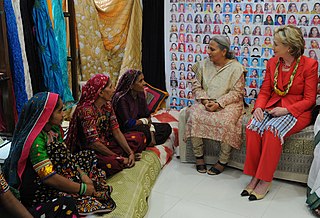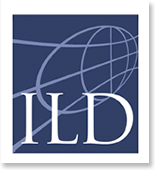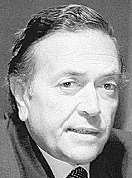
Squatting is the action of occupying an abandoned or unoccupied area of land or a building, usually residential, that the squatter does not own, rent or otherwise have lawful permission to use. The United Nations estimated in 2003 that there were one billion slum residents and squatters globally. Squatting occurs worldwide and tends to occur when people who are poor and homeless find empty buildings or land to occupy for housing. It has a long history, broken down by country below.

An informal economy is the part of any economy that is neither taxed nor monitored by any form of government. Although the informal sector makes up a significant portion of the economies in developing countries, it is sometimes stigmatized as troublesome and unmanageable. However, the informal sector provides critical economic opportunities for the poor and has been expanding rapidly since the 1960s. Integrating the informal economy into the formal sector is an important policy challenge.
Private property is a legal designation for the ownership of property by non-governmental legal entities. Private property is distinguishable from public property, which is owned by a state entity, and from collective or cooperative property, which is owned by a group of non-governmental entities.

Alberto Kenya Fujimori Inomoto is a Peruvian former politician, professor and engineer who was the de jure President of Peru from 28 July 1990 until 22 November 2000, though de facto leadership was reportedly held by head of the National Intelligence Service, Vladimiro Montesinos. Frequently described as a dictator, he remains a controversial figure in Peruvian politics.

Land reform is a form of agrarian reform involving the changing of laws, regulations, or customs regarding land ownership. Land reform may consist of a government-initiated or government-backed property redistribution, generally of agricultural land. Land reform can, therefore, refer to transfer of ownership from the more powerful to the less powerful, such as from a relatively small number of wealthy or noble owners with extensive land holdings to individual ownership by those who work the land. Such transfers of ownership may be with or without compensation; compensation may vary from token amounts to the full value of the land.

Hernando Soto Polar is a prominent Peruvian economist known for his work on the informal economy and on the importance of business and property rights. His work on the developing world has earned him praise worldwide by numerous heads of state, particularly for his publication The Mystery of Capital and The Other Path. He is the current president of the Institute for Liberty and Democracy (ILD), a think tank devoted to promoting economic development in developing countries located in Lima, Peru.
Economic freedom, or economic liberty, is the ability of people of a society to take economic actions. This is a term used in economic and policy debates as well as in the philosophy of economics. One approach to economic freedom comes from the liberal tradition emphasizing free markets, free trade, and private property under free enterprise. Another approach to economic freedom extends the welfare economics study of individual choice, with greater economic freedom coming from a larger set of possible choices. Other conceptions of economic freedom include freedom from want and the freedom to engage in collective bargaining.
Nemo dat quod non habet, literally meaning "no one can give what they do not have", is a legal rule, sometimes called the nemo dat rule, that states that the purchase of a possession from someone who has no ownership right to it also denies the purchaser any ownership title. It is equivalent to the civil (continental) Nemo plus iuris ad alium transferre potest quam ipse habet rule, which means "one cannot transfer to another more rights than they have". The rule usually stays valid even if the purchaser does not know that the seller has no right to claim ownership of the object of the transaction ; however, in many cases, more than one innocent party is involved, making judgment difficult for courts and leading to numerous exceptions to the general rule that aim to give a degree of protection to bona fide purchasers and original owners. The possession of the good of title will be with the original owner.
A theory of capitalism describes the essential features of capitalism and how it functions. The history of various such theories is the subject of this article.

A hawker is a vendor of merchandise that can be easily transported; the term is roughly synonymous with costermonger or peddler. In most places where the term is used, a hawker sells inexpensive goods, handicrafts, or food items. Whether stationary or mobile, hawkers often advertise by loud street cries or chants, and conduct banter with customers, to attract attention and enhance sales.

Self-Employed Women's Association (SEWA), meaning "service" in several Indian languages, is a trade union based in Ahmedabad, India, that promotes the rights of low-income, independently employed female workers. Nearly 2 million workers are members of the Self-Employed Women’s Association across 8 states in India. Self-employed women are defined as those who do not have a fixed employer-employee relationship and do not receive a fixed salary and social protection like that of formally-employed workers and therefore have a more precarious income and life. SEWA organises around the goal of full employment in which a woman secures work, income, food, and social security like health care, child care, insurance, pension and shelter. The principles behind accomplishing these goals are struggle and development, meaning negotiating with stakeholders and providing services, respectively.

The Institute for Liberty and Democracy (ILD) is a think tank based in Lima devoted to the promotion of property rights in developing countries. It was established in 1981 by Peruvian economist Hernando de Soto. The ILD works with developing countries to implement property and business rights reforms that provide the legal tools and institutions required for citizens to participate in the formal economy.

José Alberto Bustamante Belaúnde was a Peruvian politician. He was the 48th Prime Minister of Peru and Minister of Justice from 1999 to 2000, under President Alberto Fujimori.

A black market, underground economy, or shadow economy is a clandestine market or series of transactions that has some aspect of illegality or is characterized by noncompliance with an institutional set of rules. If the rule defines the set of goods and services whose production and distribution is prohibited by law, non-compliance with the rule constitutes a black market trade since the transaction itself is illegal. Parties engaging in the production or distribution of prohibited goods and services are members of the illegal economy. Examples include the illegal drug trade, prostitution, illegal currency transactions, and human trafficking. Violations of the tax code involving income tax evasion constitute membership in the unreported economy.
Dead capital is an economic term related to property which is informally held, is not legally recognized, and cannot be exchanged for financial capital. The uncertainty of ownership decreases the value of the asset and/or the ability to lend or borrow against it. These lost forms of value are dead capital.

Street Vendors Act, 2014 is an Act of the Parliament of India enacted to regulate street vendors in public areas and protect their rights. It was introduced in the Lok Sabha on 6 September 2012 by then Union Minister of Housing and Urban Poverty Alleviation, Kumari Selja. The Bill was passed in the Lok Sabha on 6 September 2013 and by the Rajya Sabha on 19 February 2014. The bill received the assent of the President of India on 4 March 2014. The Act came into force from 1 May 2014.

The presence of street vendors in Mexico City dates back to pre-Hispanic era and over the centuries the government has struggled to control it, with most recently a clearing of downtown streets of vendors in 2007, but despite this there is a persistent presence of many thousands illegally. Even after oscillating between the realms of legality and illegality, street vending in Mexico and even in other parts of the world, is not the exception but rather has been a norm when it comes to commercial activities. In 2003, it was estimated that there were 199,328 street vendors in Mexico City.
Christopher Woodruff is an American economist and Professor of Development Economics at Oxford University.

Squatting in Peru is the occupation of unused or derelict buildings or land without the permission of the owner. From the 1940s onwards, land invasions created shanty towns which were first called barriadas and later pueblos jóvenes. They were initially repressed, then the government decided upon toleration and by 1998 it was estimated 2.5 million inhabitants were living in this way in the capital Lima. There are also slum tenements in the centre known as solares or tugurios, and a Wall of Shame has been built to separate rich and poor areas of the city. During the COVID-19 pandemic, an increase in the occupation of UNESCO World Heritage Sites such as Caral and the Nazca Lines was reported.

Plan Verde was a clandestine military operation developed by the armed forces of Peru during the internal conflict in Peru; it involved the genocide of impoverished and indigenous Peruvians, the control or censorship of media in the nation and the establishment of a neoliberal economy controlled by a military junta in Peru. Initially drafted in October 1989 in preparations for a coup d'état to overthrow President Alan García, the operation was extended into the 1990 Peruvian general election and was reported to be subsequently executed under the government of newly elected president Alberto Fujimori following the 1992 Peruvian coup d'état. Shortly after the coup, Plan Verde was first leaked to the public by Peruvian magazine Oiga, with a small number of other media outlets also reporting access to the plan's documents.















